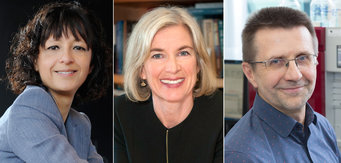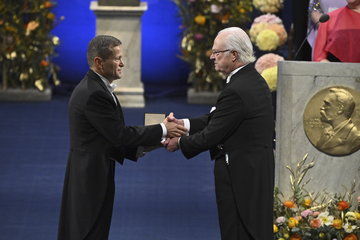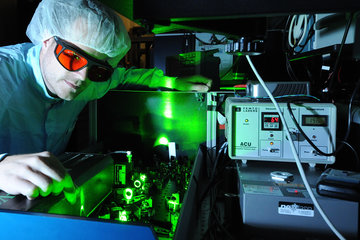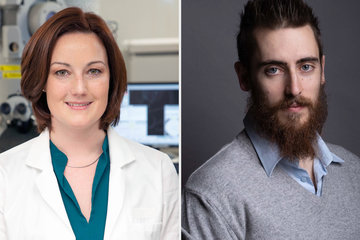Breakthrough in genetic engineering: Emmanuelle Charpentier wins Kavli Prize
Emmanuelle Charpentier, director at the Max Planck Institute for Infection Biology in Berlin, is among the winners of the internationally renowned Kavli prize. She is honoured for her pioneering work in developing the CRISPR-Cas9 system, a breakthrough tool for genetic engineering. The award ceremony will take place in Oslo on September 4, 2018.

Emmanuelle Charpentier, director at the Max Planck Institute for Infection Biology in Berlin, receives the 2018 Kavli Prize in the field of nanoscience together with Jennifer A Doudna, at the University of California, Berkeley in the USA) and Virginijus Šikšnys at Vilnius University in Lithuania. The three outstanding scientists are honored “for the invention of CRISPR-Cas9, a precise nanotool for editing DNA, causing a revolution in biology, agriculture, and medicine,” the jury said in a statement.
The prize consists of a gold medal and is endowed with a cash prize of 1 million US-Dollar for each field. It is awarded by the Norwegian Academy of Science and Letters. Besides nanoscience, the Kavli prize was also presented to astrophysicist Ewine van Dishoeck from the Netherlands in the astrophysics category and to neuroscientists A. James Hudspeth (USA), Robert Fettiplace (UK), and Christine Petit (France) in the field of neuroscience.
"These Laureates represent truly pioneering science, the kind of science which will benefit humanity in a profound way. They will inspire both current and future generations to continue searching for answers to some of the most difficult questions of our time. Through their hard work, dedication and innovation, they have strengthened our understanding of existence," says Ole M. Sejersted, President of the academy. The prizes will be awarded during a banquet with His Majesty King Harald from Norway at Oslo's City Hall.
The CRISPR-Cas9 system of bacteria can be used as an extremely precise tool to edit genetic material and study gene function, raising hope that CRISPR-Cas9 can be used to develop new treatment options for serious human diseases in the future. In 2011, E. Charpentier published a seminal article in Nature, describing tracrRNA, a molecule of RNA nature, as part of the CRISPR-Cas9 defense system. The description of the mechanism by a dual-RNA-Cas9 complex and its harnessing into the CRISPR-Cas9 technology was then published a year later in Science. This discovery was a milestone for molecular biology, and has already won many prizes. Charpentier has received, amongst other, such prestigious awards as the Breakthrough Prize in Life Sciences, Ernst Jung Prize for Medicine, the Louis-Jeantet Prize for Medicine, the Paul-Ehrlich-und-Ludwig-Darmstaedter Prize as well as the Japan Prize in 2017.
The Kavli Prize is a partnership between The Norwegian Academy of Science and letters, the Kavli Foundation (USA) and The Norwegian Ministry of Education and Research. It is presented every two years and was first awarded in 2008. So far, 40 scientists from eight countries have received the Prize. All laureates are chosen by committees whose members are recommended by six of the world’s most renowned science societies and academies. Thus, the prize is regarded as one of the most important awards in nanoscience, astrophysics and neuroscience.
TH/JE












